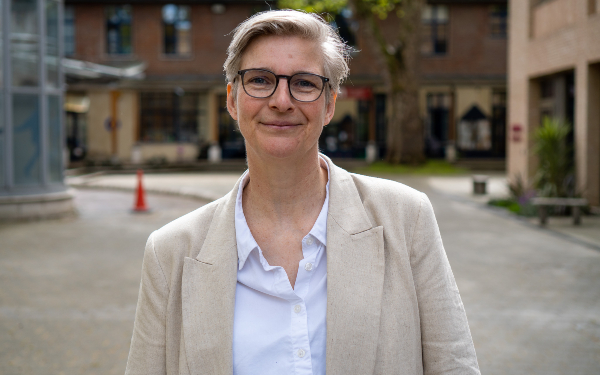
More children are at risk of extra-familial harm or living in families using food banks or accessing benefits, children’s social workers have reported.
However, in the face of this rising need, most practitioners believe that key support services for families, including those offering financial assistance or counselling, are “poor”.
Those were among the findings of an online survey of 570 children’s social workers working for councils or children’s trusts in England, carried out by Frontline in June 2024.
The charity, which delivers the fast-track Approach Social Work qualifying training programme, also found practitioners were battling high caseloads and a lack of resources, with most feeling that they did not see children on their caseloads often enough.
As in previous surveys of social workers, a large majority of respondents also reported feeling that the profession was viewed negatively by the public.
Rising levels of extra-familial harm
Almost four in five social workers (79%) said they had seen a rise in the number of young people at risk of extra-familial harm. Of this group, 70% had seen rising levels of criminal exploitation, 60% sexual exploitation and 58% online harm.
The finding chimes with an analysis of official data on factors identified following child in need assessments from 2014-21, which identified a disproportionate rise in the number of cases involving risks outside the home during this period.
In relation to poverty, 85% of social workers reported a rise in the number of families they worked with who were using food banks, while 70% said more of these families were accessing benefits.
The proportion of children living in absolute poverty* in the UK – after taking into account of housing costs – rose from 23% to 25% between 2021-22 and 2022-23, official figures show.
Support services for families ‘poor’
However, despite this rising level of reported need, most social workers believed key services that they could refer families to were “poor”.
Almost three-quarters (73%) gave this rating to housing assistance programmes, with 66% doing so for counselling and mental health support, 59% for financial assistance schemes and 57% for specialist educational resources.
Practitioners were more positive about substance misuse, parenting support and domestic abuse programmes, but in each case, majorities rated provision as poor or fair.
High caseloads and underfunding
In an echo of multiple previous surveys of social workers, respondents said workloads and underfunding were undermining practice.
When asked for the three biggest barriers to their abilities to do their jobs well, 65% cited high caseloads, 57% a lack of resources and 54% funding constraints.
Reflecting this, three out of five respondents said they did not think they saw each child who they were responsible for often enough.
Social work shortages ‘set to increase’
The finding comes against the backdrop of longstanding pressures on local authority budgets and the social work workforce, both of which have been labelled as “critical risks” by the Department for Education (DfE).
Latest DfE figures show a vacancy rate of 18.9% among statutory children’s social workers in England and, in its 2023-24 annual report, the department said it expected the shortage of practitioners to increase over the coming decade.
Practitioners surveyed by Frontline were relatively satisfied with their supervision, with a majority saying they say their supervisor often enough and more than 85% saying that supervision was helpful for their work.
Social workers downbeat about public perceptions of profession
However, 91% felt that social workers were perceived negatively by the public and 94% said public perceptions and media portrayals of the profession affected their ability to work with children and families.
This echoes the findings of research last year commissioned by Social Work England, which found that 11% of social workers felt the profession was well-respected within society.
Analysis by linguistics academic Dr Maria Leedham found that, in a three-month period in 2019, there were four times as many negative stories about social work than positive ones, though the majority were neutral.
Separate research by Leedham identified that social workers rarely featured in TV programmes and, when they did, they almost always worked in child protection and were described as either judgmental bureaucrats or child snatchers.
However, more positively, the Social Work England-commissioned research found that 74% of adults in England felt that social workers wanted the best for people they worked with and 62% thought they made a big difference to improving people’s lives.
‘Not nearly enough has changed’ in social work

Mary Jackson, chief executive officer, Frontline (credit: Frontline)
Reflecting on Frontline’s findings, the charity’s chief executive, Mary Jackson, said: “Not nearly enough has changed in terms of improving support for children, families and social workers and now the challenges are compounded by worsening poverty and the rise of extra-familial harms.”
On the back of the research, Frontline called on the government and councils to:
- Take action to tackle child poverty and extra-familial harm, in order to improve child safety.
- Improve support for families, including by enabling social workers to spend more time with them.
- Launch a national campaign to change public perceptions of social work, to increase its appeal as a career, help existing social workers feel appreciated and help challenge the stigma families sometimes face when they have a social worker.
*Under the government’s definition, absolute poverty means living in a household whose income is less than 60% of the median income in 2010-11, adjusted for inflation and household size.


 Bournemouth, Christchurch and Poole
Bournemouth, Christchurch and Poole  Hampshire County Council
Hampshire County Council  Lincolnshire County Council
Lincolnshire County Council  Norfolk County Council
Norfolk County Council  Northamptonshire Children’s Trust
Northamptonshire Children’s Trust  South Gloucestershire Council
South Gloucestershire Council  Wiltshire Council
Wiltshire Council  Wokingham Borough Council
Wokingham Borough Council  Children and young people with SEND are ‘valued and prioritised’ in Wiltshire, find inspectors
Children and young people with SEND are ‘valued and prioritised’ in Wiltshire, find inspectors  How specialist refugee teams benefit young people and social workers
How specialist refugee teams benefit young people and social workers  Podcast: returning to social work after becoming a first-time parent
Podcast: returning to social work after becoming a first-time parent  Podcast: would you work for an inadequate-rated service?
Podcast: would you work for an inadequate-rated service?  Family help: one local authority’s experience of the model
Family help: one local authority’s experience of the model  Workforce Insights – showcasing a selection of the sector’s top recruiters
Workforce Insights – showcasing a selection of the sector’s top recruiters 

 Facebook
Facebook X
X LinkedIn
LinkedIn Instagram
Instagram
Its no coincidence that rising levels of poverty and service cut backs have increased the prevalence of risks outside of the home. It can make sense for a young person living in poverty to seek to earn money by selling drugs…and their parents can be supportive and collusive in this. Of course, such behaviour is not without its dangers, including that of associated knife crime and violence. Therefore, there is a role for social work in cases of extra-familial harm in safeguarding children. However, as with all social work, it needs to be delivered in a skilfull way, considering the contexts of the child’s family, neighbourhood and city; as well as the child’s psyche with reference to probable relational and developmental trauma.
Surely if “it makes sense” to regard crime as a means of coping with poverty, the most effective social work would be to tackle poverty rather than perhaps the easier option of ‘psycologising’ behaviour and circumstances? Poverty doesn’t go away as a driver while social workers scramble to unpick trauma which by it’s complexity may require long term and perhaps painstakingly slow work does it?
Wanting to solve problems rather than analysing them is a novel way to do social work Lee.
The only problem solving strategy I’ve been allowed to implement as a social worker is a maths problem. Namely, how much of this care package are you going to reduce. Reduce, recalculate, reduce further and recalculate again.
Said almost every social worker in every part of the country. Soon to be replaced by AI expertise no doubt.